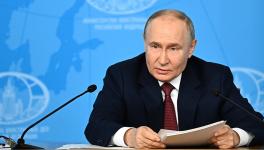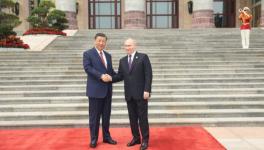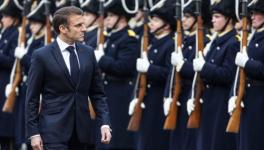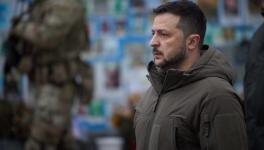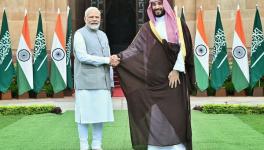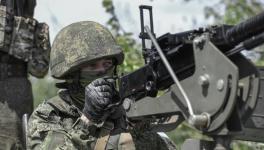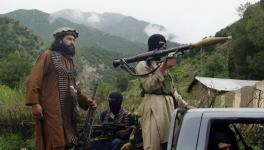EU Calls for Immediate Ceasefire in Libya and an End to All Foreign Intervention
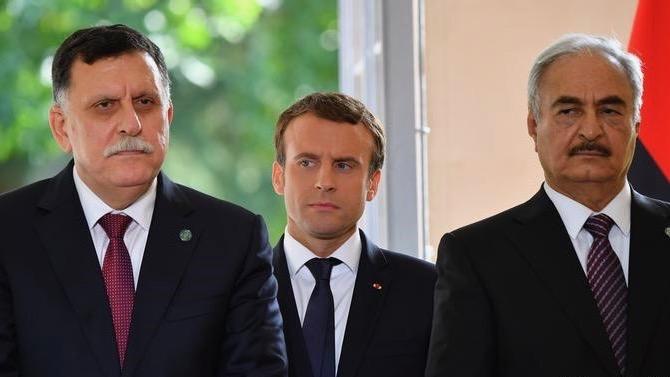
French president Macron with rivals, Fayez al-Sarraj of the Government of National Accord and the head of Libyan National Army, Khalifa Haftar. (Photo : DW)
In a joint statement issued on June 9, Tuesday, the European Union (EU) foreign policy chief, Josep Borrell, along with foreign ministers of Germany, France and Italy, called for the cessation of all hostilities in Libya and the withdrawal of all foreign troops and military equipment from the country.
The statement comes even as the warring factions in the country are backed by various EU members. Despite the imposition of an arms embargo by the United Nations Security Council since 2011, most of the warring factions are supplied with sophisticated arms by the major arms-exporting countries in the world, some of which are EU members.
The EU’s statement endorsed the Cairo Declaration, signed by Khalifa Haftar’s parliamentary government in Tobruk and Egypt’s president Abdel Fattah el-Sisi on June 6. The Cairo Declaration talks about a ceasefire and proposes a new political institution to rule the country.
However, the Tripoli-based Government of National Accord (GNA), headed by Fayez al-Sarraj, did not participate in the Cairo Declaration, neither did the countries backing the GNA.
On June 10, Turkish foreign minister Mevlut Cavusoglu called the Cairo Declaration “not convincing” and an “attempt to save Haftar” at a time when the Libyan government (GNA) is making gains on the ground, as per the Turkish media.
The EU statement calls on all parties to work for peace as per the Berlin process initiated by Germany last year. The process is supported by most of the European countries, including Russia.
NATO invaded Libya in 2011 using the protests against the Muammar Gaddafi-led government as an excuse. This led to the present-day chaos in the country. After the failure of a UN-led initiative in 2014 to bring peace, Libya has been virtually divided into three areas, each controlled by one, or a group of several militias backed by different foreign forces.
Libya’s east is controlled by forces led by warlord Khalifa Haftar’s Libyan National Army (LNA), backed by the elected parliament based in the eastern city of Tobruk and also backed by Egypt, UAE, and others. It is also speculated that Russia supports Haftar’s forces. It has control over the main oil producing regions of the country.
The GNA, backed by the UN, Italy and Turkey, is based in capital Tripoli. In the last couple of months, it has been able to recapture some important cities and strategic locations due to the deployment of Turkish militias and arms. Encouraged by their recent gains, GNA forces are now trying to capture the city of Sirte.
The southern parts of the country are controlled by several independent militias.
Get the latest reports & analysis with people's perspective on Protests, movements & deep analytical videos, discussions of the current affairs in your Telegram app. Subscribe to NewsClick's Telegram channel & get Real-Time updates on stories, as they get published on our website.









